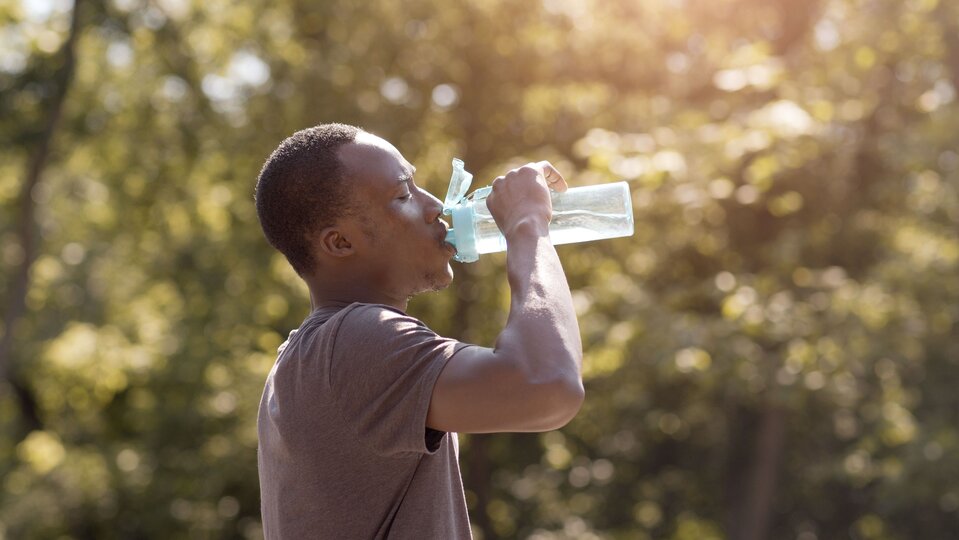Beat The Heat with Hydration
The Importance of Proper Hydration in Hot Weather
As the summer heat kicks in, it’s essential to prioritize hydration to maintain optimal physical and cognitive performance. Even moderate dehydration can negatively impact your ability to perform at your best, regardless of your activity level or profession.
Proper hydration has been linked to numerous benefits, including a biologically younger age, longer lifespan, and reduced risk of chronic diseases. However, many individuals neglect to drink enough water, especially during hot weather and intense physical activity.
Symptoms of Dehydration
Dehydration occurs when your body loses more water than it takes in, which can have a significant impact on your physical and cognitive functions. Common symptoms of dehydration include:
- Headaches
- Dizziness or lightheadedness
- Fatigue or weakness
- Dark-colored urine or a decrease in urine output
- Thirst
Factors Affecting Hydration
Several factors can impact your hydration status, including:
- Age: Older adults tend to dehydrate more quickly
- Gender: Men tend to require more water than women
- Body size: Larger-bodied individuals may dehydrate more easily
- Sweat rate: People with higher sweat rates may dehydrate more quickly
Environmental Factors
In addition to biological factors, environmental conditions can also impact your hydration status. These include:
- High temperature and humidity levels
- Low or no availability of shade
- Significant elevation gain
- Significant load carried
- Time of day when the sun is strongest
Hydration and Performance
Dehydration can significantly impact your physical and cognitive performance. Even mild dehydration can lead to decreased endurance, muscle force generation, and cognitive function. In addition, dehydration can increase the risk of overheating, heat sickness, and heat stroke.
It’s essential to prioritize hydration, especially during hot weather and intense physical activity. Drinking enough water can help maintain optimal performance, reduce the risk of dehydration, and promote overall health and well-being.
Guidelines for Hydration
Before Exercise
It’s recommended to drink 0.1 oz/lb of water 4 hours before exercise, or at least 20 oz for a 200-lb individual. This allows your body time to absorb the water and reduces the risk of dehydration during exercise.
During Exercise
Aim to lose no more than 2% of your body weight during exercise. You can monitor your sweat loss by measuring your weight before and after exercise, as well as your urine output and water intake. Drink 8-16 oz of water per hour of activity, adjusting for hotter temperatures and other environmental factors.
After Exercise
If you have at least 12 hours before your next vigorous workout, rehydrate using your regular eating and drinking habits. If you have less than 12 hours before your next workout, aim to drink 0.70 L of fluid per pound of weight lost during exercise.
General Hydration Tips
- Invest in a nice water bottle that makes you happy
- Keep water in sight all day long
- Flavor your water with a tea bag, supplement, or other source of flavor
- Plan your hydration strategy according to environmental and physiological factors
Conclusion
Prioritizing hydration is crucial during hot weather and intense physical activity. By understanding the symptoms of dehydration, factors affecting hydration, and guidelines for hydration, you can maintain optimal physical and cognitive performance. Remember to drink enough water, monitor your sweat loss, and adjust your hydration strategy according to environmental and physiological factors.
FAQs
Q: How much water should I drink before exercise?
A: Aim to drink 0.1 oz/lb of water 4 hours before exercise, or at least 20 oz for a 200-lb individual.
Q: How much water should I drink during exercise?
A: Aim to lose no more than 2% of your body weight during exercise. Drink 8-16 oz of water per hour of activity, adjusting for hotter temperatures and other environmental factors.
Q: How much water should I drink after exercise?
A: If you have at least 12 hours before your next vigorous workout, rehydrate using your regular eating and drinking habits. If you have less than 12 hours before your next workout, aim to drink 0.70 L of fluid per pound of weight lost during exercise.
Q: What are some general hydration tips?
A: Some general hydration tips include investing in a nice water bottle, keeping water in sight, flavoring your water, and planning your hydration strategy according to environmental and physiological factors.
Recommended Products:
-

Align Digestive Health Prebiotic + Probiotic Supplement Gummies in Natural Fruit Flavors, Probiotic for Men and Women, #1 Doctor Recommended Brand, 50 Gummies
$20.98 Buy Now -

Metabolic Nutrition | TRIPEP – Tri-Peptide Branch Chain Amino Acid, BCAA Powder, Pre Intra Post Workout Supplement | Watermelon, 400 Grams (40 Servings)
$34.99 Buy Now -

SOLARAY Tongkat Ali 400 mg – Longjack Tongkat Ali for Men – Herbal Support for Men’s Health and Vitality – Vegan, Non-GMO, Lab Verified – 60 Servings, 60 VegCaps
$12.99 Buy Now



